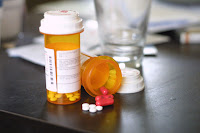The truth about drugs: Teens Lie, but so do their parents!
Teenagers' confidential reports about illicit drug use are used by doctors and public health experts to measure the extent of the problem, and to help teens in trouble. But it turns out that teens fib big time in those anonymous surveys—and their parents do, too.
A study conducted by researchers asked 432 African-American teenagers and their parents to participate in an anonymous survey about their use of cocaine, opiates, and marijuana, and said they would also be drug-tested. Of the 211 teenagers whose hair was tested for cocaine, 2 said they used it—while 69, or 34 percent, tested positive, according to a new study in Pediatrics. Of the 244 parents tested, 15 said they had used cocaine, while 69, or 28 percent, tested positive.
The parents surveyed were pretty bad at guessing if their child was using alcohol or drugs. For instance, 9.6 percent of the parents said their teenager drank alcohol, while 25 percent of the teenagers said they did. With marijuana, 9.5 percent of parents said their teenager smoked dope, while 17 percent of the teens said they did.
This is not the first time that a study to found parents are clueless about teens' drug and alcohol use. That may be because parents tend to shrug off drug and alcohol use as standard teen behavior, according to a survey published last January in Pediatrics. But that cluelessness comes at a price. Early drug and alcohol abuse increases a child's risk of addiction and health problems in adulthood, and also of teenage suicide.
But the key take-home here is not so much that teens are using drugs, but that they are not likely to admit it. That's not a huge surprise, given that we're talking about illegal behaviors that can have big consequences. The self-reported drug use in the study was typical of the amount reported in national anonymous surveys of drug use for urban neighborhoods. The researchers, at Wayne State University in Detroit, say that relying on anonymous surveys could lead researchers, parents, and pediatricians seriously astray in estimating the health risks teenagers face.
Parents can increase the likelihood that their children will come to them with questions and concerns about drugs and alcohol if they:
There are a lot of reasons for teenagers (and parents) to say "I don't" when asked about drug use. But by making the perils and lure of illicit substances part of ordinary family discussion, parents may be doing their children a big favor—and may get a clearer sense of the realities of teenage life.
- Start talking about the risks of drugs and alcohol when children are still young. Children who learn about drugs and alcohol from their parents are half as likely to use as are children who learn from peers, according to the Partnership for a Drug-Free America.
- Help children rehearse what they will say to peers who want them to drink or use drugs with them; studies have found that practicing responses makes it much more likely that teenagers will successfully fend off peer pressure.
- Use brain science. Researchers now think that teenage brains are more vulnerable to tobacco, drugs, and alcohol because they are still forming vital connections. Drug-prevention efforts increasingly include information on how to keep a teen brain healthy and powerful.


Comments